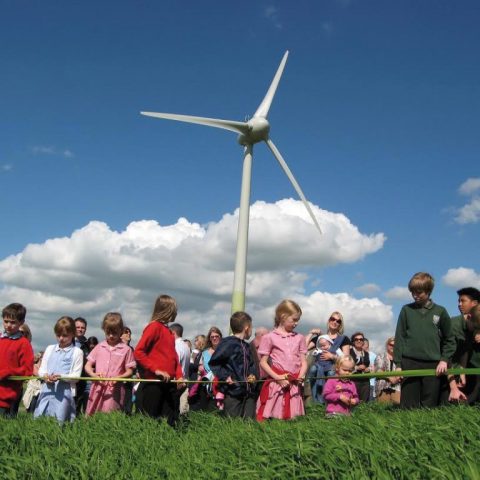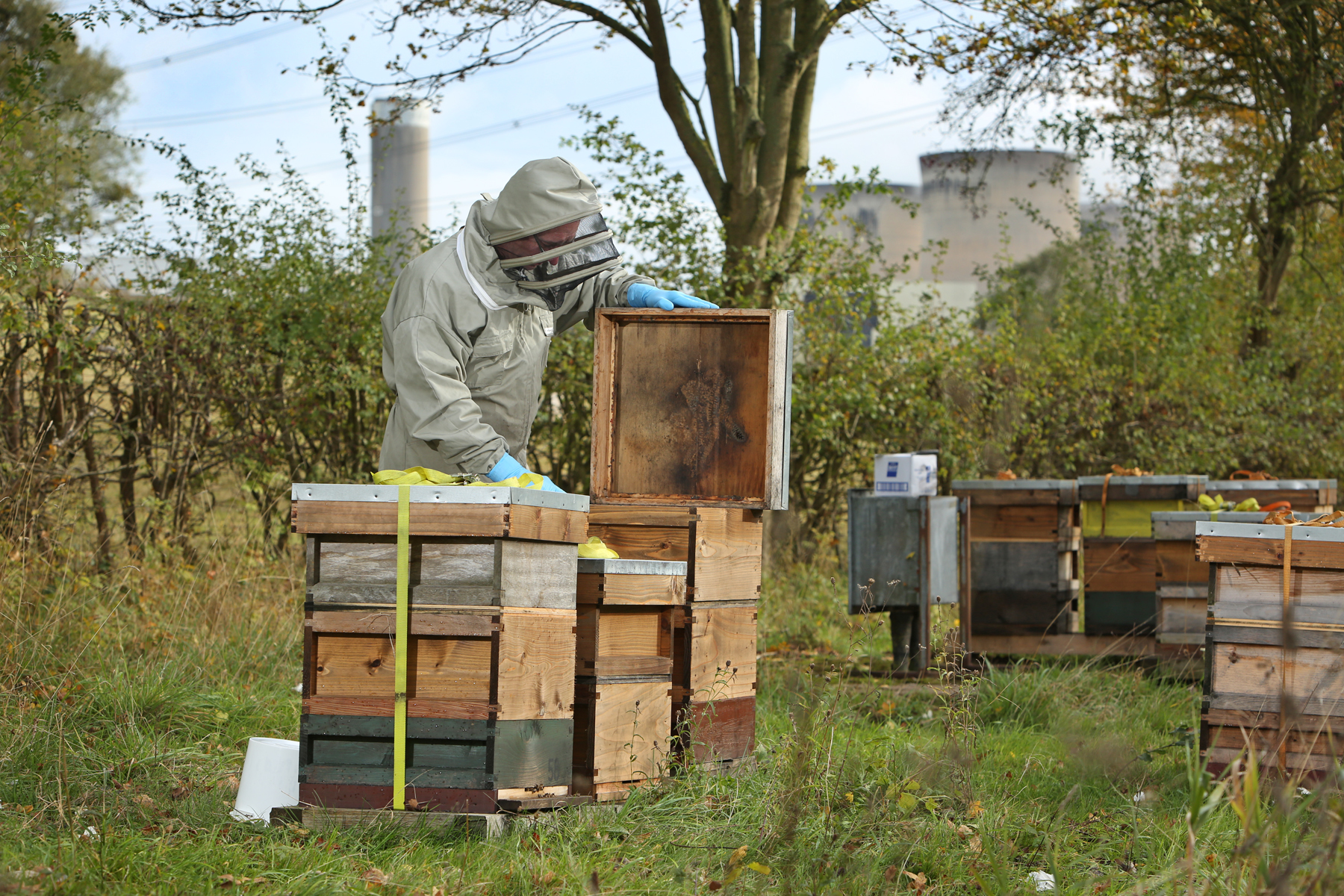
Two dozen honey bee colonies were established on the 350-acre nature reserve which forms part of the Drax site near Selby in the summer – and the busy insects have already produced enough honey to fill 350 jars, with more expected next year.
The latest nature project to take place on the Barlow Mound reserve which forms part of the Drax Power Station site saw West Yorkshire-based businessman Chris Holmes move the 24 hives into place in July as an initial trial. He has seen immediate success, with 300lbs of Barlow Mound Honey already produced.
Chris, who set up his business, Stickeys, in 2008, will now maintain the colonies over the winter ready for next year, when the bee population in the two dozen hives is expected to grow to more than a million and produce up to 2,000 jars of the sticky breakfast favourite.
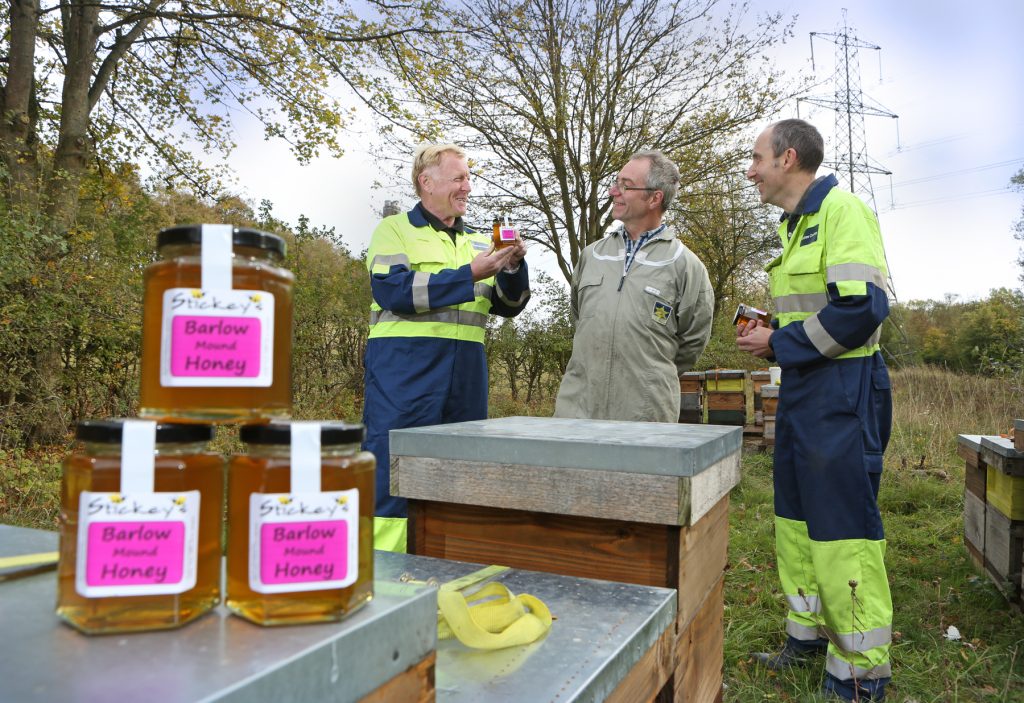
Barlow Mound was developed at Drax from the early 1970s and has become a major nature reserve in the area, home to a variety of wildlife and plant life, and a valuable educational resource for schools, colleges and local nature groups.
The bees live on the reserve, just a few hundred yards from the power station, which is the biggest renewable power producer in the country and the largest decarbonisation project in Europe, producing enough renewable electricity to power around four million homes.
And the honey they have produced has already received the thumbs up for taste from staff at Drax including Andrew Christian, whose role at the power plant includes managing the Barlow Mound reserve and who worked with Chris on introducing the bees.
“I’m really proud that we’ve managed to bring the bees in and help enhance the ecology of the nature reserve still further. It’s just one more way in which we’re able to keep developing Barlow Mound and to get something as tasty as this as a result is a bonus,” said Andrew, who has already bought some of the honey for his own breakfasts.
“Working closely with our ecologists, we’re always looking for new ways to improve the biodiversity of the site and we thought that bees would be a great idea. Chris came highly recommended to us and it’s been a great success so far. It’s one more way to show that there’s more to Drax and the honey is absolutely delicious.”
Chris, who runs his business from his home in Flockton, near Wakefield, said:
“You might not expect a power station to be somewhere where bees would live but the site is absolutely perfect.
“Barlow Mound has got all the plants and pollen that honey bees need and it’s just an ideal location for them to thrive. It’s also a secure site which means the bees are safe and will be left alone to do their own thing, which is also important, and Drax have been brilliant in helping me to get this established.
“It’s now heading into winter so the bees won’t be producing any more honey until next year but when they do, I’m hoping it will be a really productive site for us. I hope this will be the start of us producing honey at Drax for many years to come.”

Each of the 24 colonies will be home to up to 50,000 bees when fully established, with each hive producing an expected 60lbs of honey a year, though that amount could increase or decrease depending on the weather conditions.
The bees’ site overlooks the power station, which recently converted the fourth of its six generating units from coal to running on renewable biomass. It has plans to repower its two remaining coal units to use gas, and be off coal ahead of the government’s 2025 deadline.
Drax is also scheduled to begin an innovative Bioenergy Carbon Capture and Storage pilot project later this year which could help the power station deliver negative emissions, essential if the world is to tackle climate change.
For more information or to buy any Stickeys honey, including Barlow Mound Honey, visit www.stickeys.co.uk
-ENDS-
Media contacts:
| Ali Lewis
Drax Group Interim Head of Media & PR
E: [email protected]
T: 07712670888
|
Mark Duffell
MCD Communications Ltd
E: [email protected]
T: 01484 968238
M: 07969 080272
|
About Drax
Drax Group plc plays a vital role in helping change the way energy is generated, supplied and used. Its 2,300-strong staff operate across three principal areas of activity – electricity generation, electricity sales to business customers and compressed wood pellet production.
The Group includes:
Drax Power Ltd, which operates the largest power station in the UK, based at Selby, North Yorkshire and supplies six percent of the country’s electricity needs. The energy firm converted from burning coal to become a predominantly biomass-fuelled electricity generator. Drax is the biggest renewable generator in the UK and the largest decarbonisation project in Europe.
Haven Power, based in Ipswich, supplies electricity to large Industrial and Commercial sector businesses.
Opus Energy, based in Oxford, Northampton and Cardiff, provides electricity and gas to small and medium sized (SME) businesses.
Drax Biomass, is based in the US and manufactures compressed wood pellets produced from sustainably managed working forests, supplying fuel used by Drax Power Station in North Yorkshire to generate flexible, renewable power for the UK’s homes and businesses.
For more information visit www.drax.com/uk
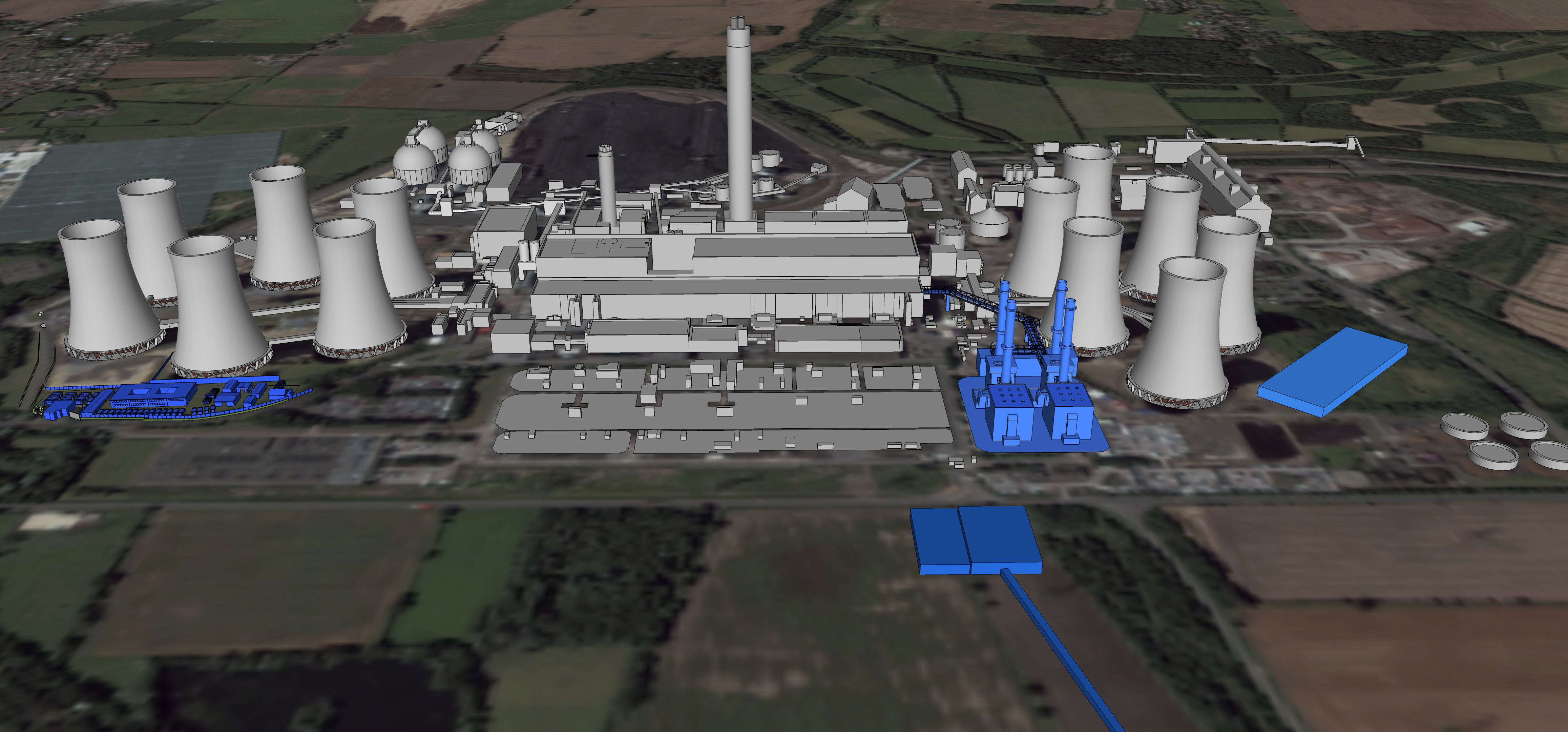




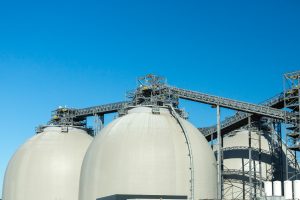


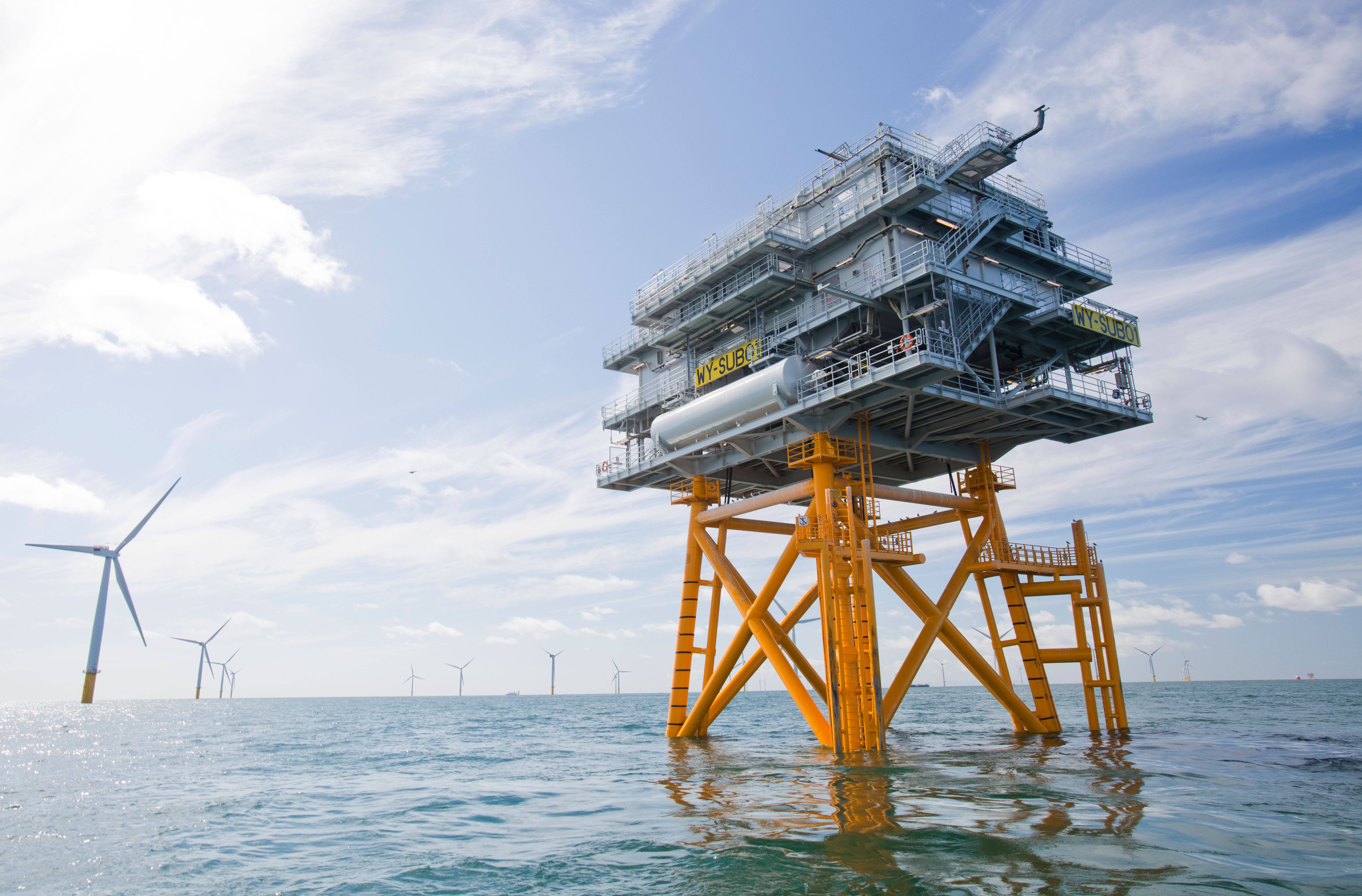



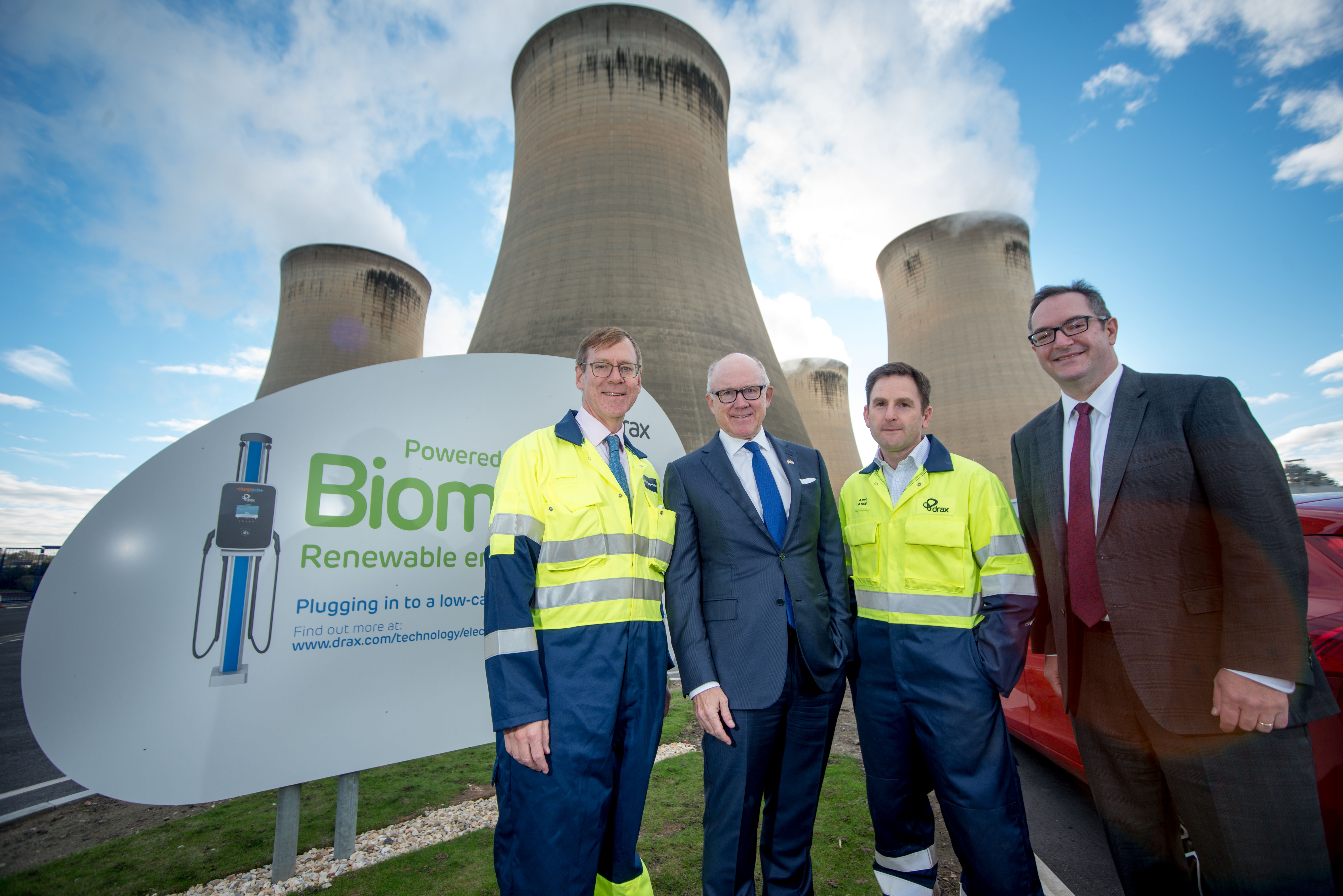
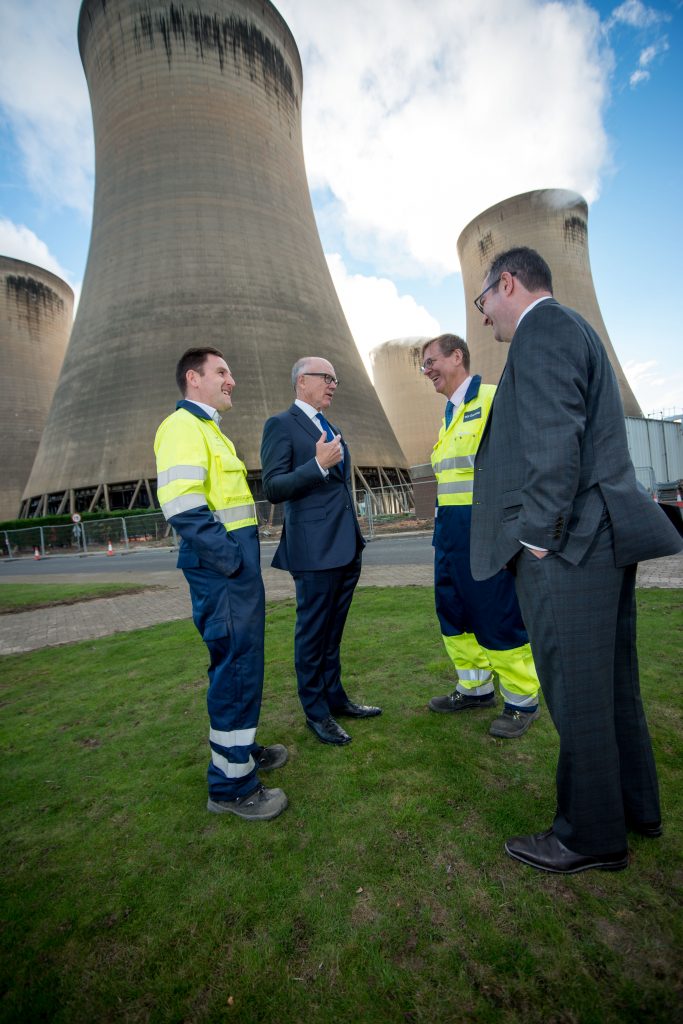

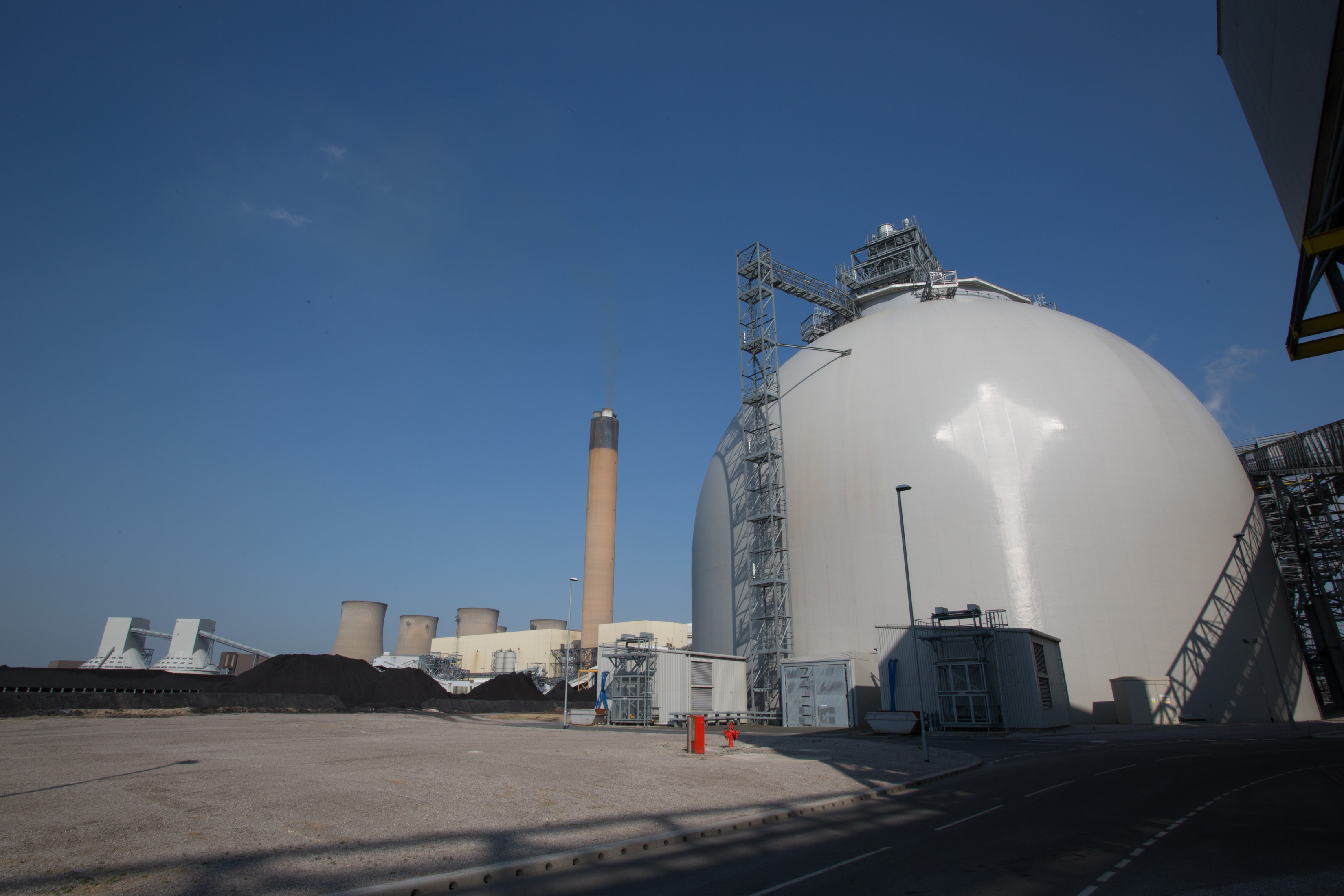
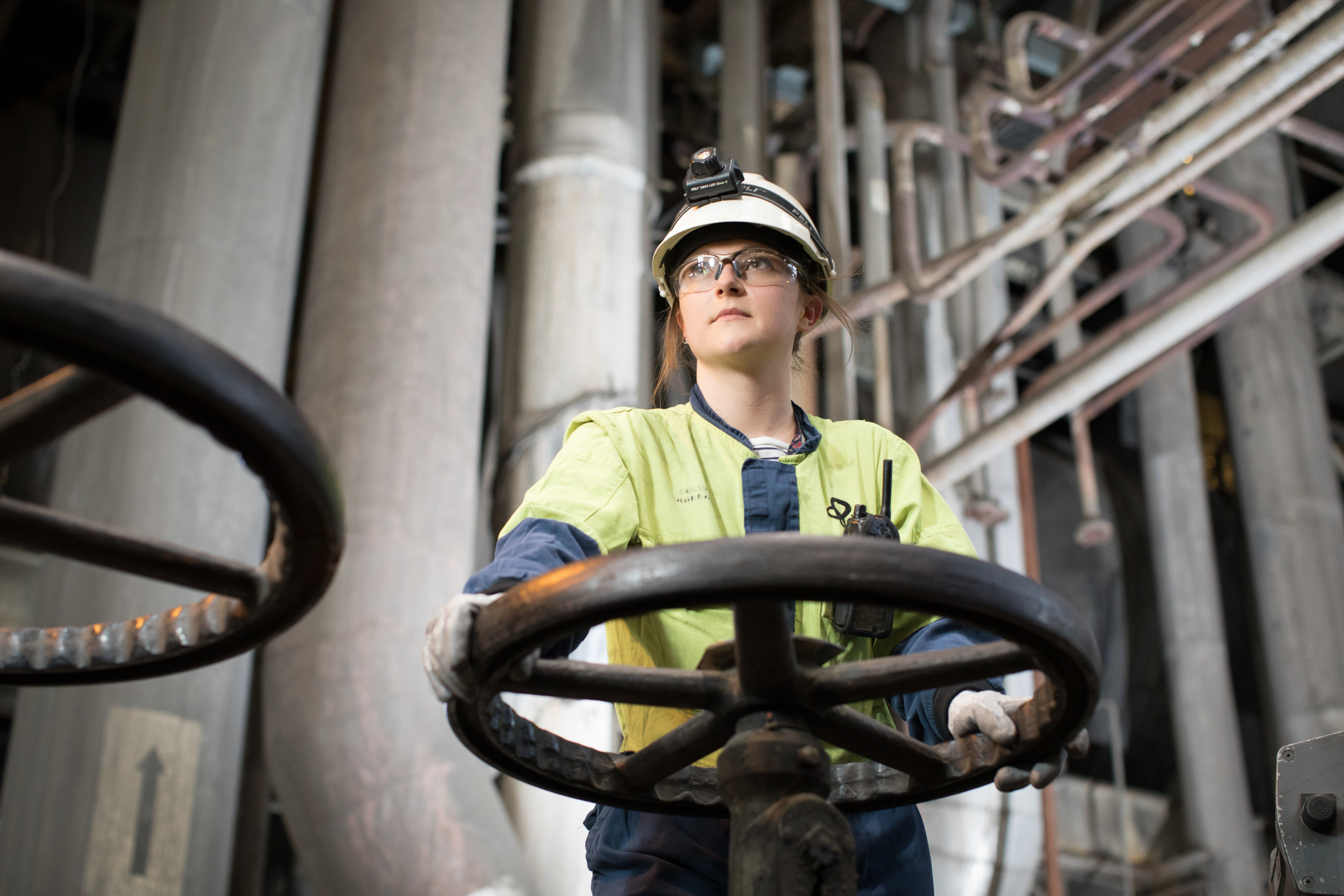
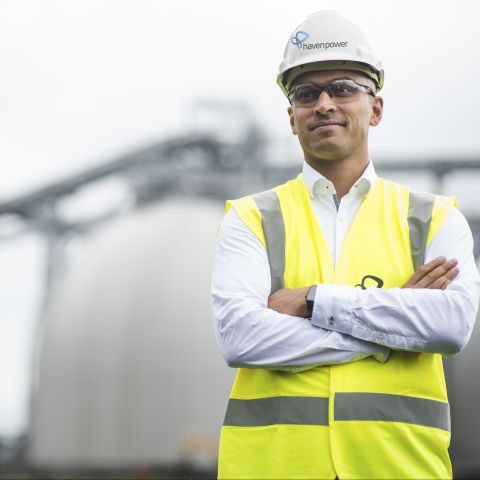 This is a new record number of UK business sites to receive certified 100% renewable power – making Opus Energy and Haven Power collectively the largest suppliers of renewable energy to UK businesses.
This is a new record number of UK business sites to receive certified 100% renewable power – making Opus Energy and Haven Power collectively the largest suppliers of renewable energy to UK businesses.